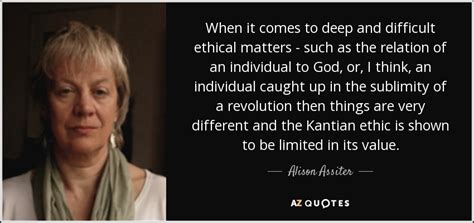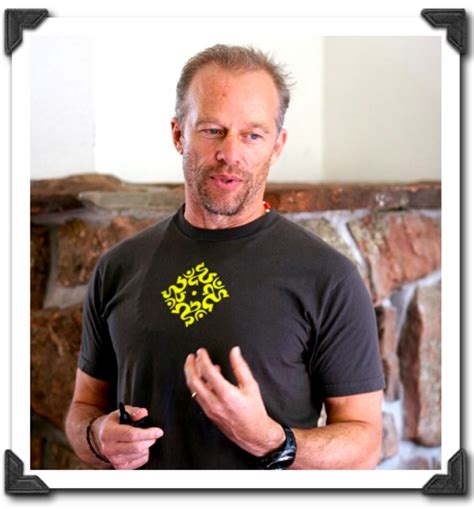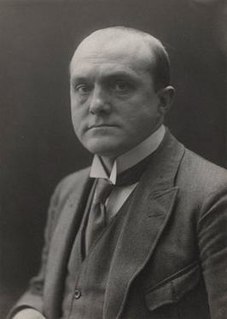A Quote by Albert Einstein
It is very difficult to explain this feeling to anyone who is entirely without it, especially as there is no anthropomorphic conception of God corresponding to it. The individual feels the nothingness of human desires and aims and the sublimity and marvelous order which reveal themselves both in Nature and in the world of though. He looks upon individual existence as a sort of prison and wants to experience the universe as a single significant whole.
Related Quotes
Common to all these types is the anthropomorphic character of their conception of God. In general, only individuals of exceptional endowments, and exceptionally high-minded communities, rise to any considerable extent above this level. But there is a third stage of religious experience which belongs to all of them, even though it is rarely found in a pure form: I shall call it cosmic religious feeling. It is very difficult to elucidate this feeling to anyone who is entirely without it, especially as there is no anthropomorphic conception of God corresponding to it.
The vanity of existence is revealed in the whole form existence assumes: in the infiniteness of time and space contrasted with the finiteness of the individual in both; in the fleeting present as the sole form in which actuality exists; in the contingency and relativity of all things; in continual becoming without being; in continual desire without satisfaction; in the continual frustration of striving of which life consists. . . Time is that by virtue of which everything becomes nothingness in our hands and loses all real value.
Faith is precisely the paradox that the single individual as the single individual is higher than the universal, is justified before it, not as inferior to it but superior - yet in such a way, please note, that it is the single individual who, after being subordinate as the single individual to the universal, now by means of the universal becomes the single individual who as the single individual is superior, that the single individual as the single individual stands in an absolute relation to the absolute.
The physical universe that you see is all in your mind. When you turn your mind off, or become unconscious, the physical universe, for you, disappears. Then, when you awaken your consciousness, the universe reappears magically. Quite simple really - no thoughts on your part, no physical world. As Walt Whitman succinctly stated: "The whole theory of the universe is directed unerringly to one single individual - namely to You." Without your mind to process it, the universe simply disappears into nothingness.
No one is without Christianity, if we agree on what we mean by that word. It is every individual's individual code of behavior by means of which he makes himself a better human being than his nature wants to be, if he followed his nature only. Whatever its symbol - cross or crescent or whatever - that symbol is man's reminder of his duty inside the human race.
The universe bursts into existence from life, not the other way around as we have been taught. For each life there is a universe, its own universe. We generate spheres of reality, individual bubbles of existence. Our planet is comprised of billions of spheres of reality, generated by each individual human and perhaps even by each animal.
The basis of artistic creation is not what is, but what might be; not the real, but the possible. Artists create according to the same principles as nature, but they apply them to individual entities, while nature, to use a Goethean expression, thinks nothing of individual things. She is always building and destroying, because she wants to achieve perfection, not in the individual thing, but in the whole.
If yoga is about life, this means ALL life, not just part of it. Together, the spiritual and the material constitute the whole you, the whole of the experience of being human, and the nature of the universe in which you live. There may be no step more important to achieving ultimate fulfillment than accepting what the Vedas teach us about desires--that some desires are inpsired by your soul.
That the speech of self-disclosure should be translatable seems to me very odd, but I am convinced that it is. The conclusion that I draw is that the only quality which all human being without exception possess is uniqueness: any characteristic, on the other hand, which one individual can be recognized as having in common with another, like red hair or the English language, implies the existence of other individual qualities which this classification excludes.
The artist must operate on the assumption that the public consists in the highest order of individual; that he is civilized, cultured, and highly sensitive both to emotional and intellectual contexts. And while the whole public most certainly does not consist in that sort of individual, still the tendency of art is to create such a public - to lift the level of perceptivity, to increase and enrich the average individual's store of values... I believe that it is in a certain devotion to concepts of truth that we discover values.
I think the truth is the Marvel fiefdom exists very independently inside the Disney world, inside the Disney universe. They're not resistant to that kind of thing but they have their, you know there is a whole sort of machine energy and momentum that is the sort of creative drive behind the whole universe that has a big impact on the individual films. I'm glad those scenes got out there. And we've got a few interesting deleted scenes on this.
The individual representation of the object, treated sympathetically or antipathetically, is highly necessary and is an enrichment to the world in form. The elimination of the human relationship causes the vacuum which makes all of us suffer in various degrees - an individual alteration of the details of the object represented is necessary in order to display on the canvas the whole physicals reality.


































